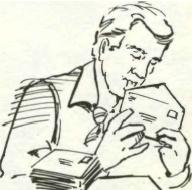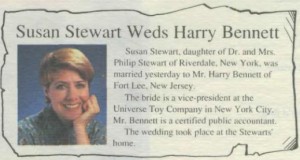Family Album USA 17 — Foto Finish
Смотреть онлайн в хорошем качестве курс английского языка — сериал Family Album USA 17 серия “Foto Finish” с английскими субтитрами:
In this episode, you will study . . .
VOCABULARY
concept
project
landmark
journey
mime
fabulous
sensational
contract
GRAMMAR AND EXPRESSIONS
causative sentences with get and have
Does . . . ring a bell?
passive voice
making an appointment
future possibilities with if
reported speech
U.S. LIFE
What are some famous American performing arts centers?
What is America’s greatest contribution to the theater?
YOUR TURN
What kinds of performances do you enjoy watching?
Упражнения и словари к 17 эпизоду Family Album USA:
Act 1
Lincoln Center: New York City’s largest performing arts center
Metropolitan Opera: the most famous opera company in the United States. The Metropolitan Opera’s first performance was in 1883, in a different location in New York City. This opera company moved to Lincoln Center in 1966.
New York City Ballet. A dance company that performs at the New York State Theater at Lincoln Center. This company is famous for Derforming the works of ballet master George Balanchine.
New York Philharmonic. This is the oldest orchestra in the United States. Its first performance was in 1842.
Shubert Alley: an area near the Shubert Theater in Manhattan. From 1914 to 1950, the Shubert family controlled most American theater activities.
Broadway: a main street in Manhattan. Many large theaters are near Broadway. A Broadway show is a performance at one of these large theaters.
Carnegie Hall. The main hall in this building in Manhattan was the first concert hall built especially for performances by modern symphony orchestras.
Kennedy Center for the Performing Arts. The John F. Kennedy Center for the Performing Arts was created by the U.S. government to present music and dance programs by groups from the U.S. and other countries. More than 30 nations gave gifts to help build and decorate this center. After the death of President Kennedy, the center was renamed in memory of him.
Washington: Washington, D.C. (District of Columbia), is the capital of the United States.
Music Center in Los Angeles. The Music Center of Los Angeles County is the home of the Los Angeles Philharmonic Orchestra, the Center Theater Croup, the Los Angeles Music Center Opera, and the Joffrey Ballet.
some time: a long time
put it all together: organized everything
getting (the album published): getting someone to (publish, or make a book from, the album) Richard wants to get his album published. Use get ( + noun phrase + past participle) to show that the subject of the sentence (the agent) has some responsibility for an action, but is not the performer of the action. Someone else will publish Richard’s album, but Richard must do some things first: He has to prepare the photos, find the publisher, and present his work.
You may say this: Richard wants to get his album published. Or Richard wants to have his album published. These are called causative sentences.
Use get instead of have to show that the subject works harder for the action to be done—or is more directly involved in the action. For example, Richard might need to meet with many different publishers before he can convince one of them to publish his book.
Does (the name Harvey Carlson) ring a bell? = Do you remember (the name Harvey Carlson)?
concept: idea
section: part
now that: because now
set up (an appointment): to arrange (an appointment)
project: work that you plan
U.S. LIFE
Some people say that America’s greatest contribution to the theater is musical comedy. This kind of performance is a play in which music, lyrics, and dance help to tell a story. Some popular American musical comedies are Oklahoma! (1943), My Fair Lady (1956), Hello, Dolly! (1964), and A Chorus Line (1975). All these musical comedies have been Broadway shows.
YOUR TURN
- What kinds of performances do you enjoy watching?
- Are you a performer?
- Is there a particular kind of performance for which your country is famous?
Activities
PERFORMING ARTS CENTERS
Richard has taken photographs of performing arts centers for Family Album, U.S.A., his book of photos of the United States. Which of the following sentences are true, according to the information in Act I? Put a check next to the number of each correct sentence.
__ 1. Richard has photographed performing arts centers only in New York City.
__ 2. He has been working on his album for a long time.
__ 3. He has never spoken to a publisher before.
__ 4. Photographs of performing arts centers is onlyone of the sections in Richard’s album.
__ 5. Marilyn believes that Richard’s album is ready to be shown to a publisher.
__ 6. Mr. Carlson already knows something about Family Album, U.S.A.
PASSIVE VOICE AND CAUSATIVES WITH HAVE
You sometimes use the PASSIVE VOICE instead of the ACTIVE VOICE when you don’t know the AGENT (the performer of the action), or when it is not important to identify the agent. In a passive sentence, use a form of the verb BE + the past participle of the verb. Study the examples below.
The tense of BE in each passive sentence is the same as the tense of the main verb in the active sentence. But the main verb in each passive sentence is always in the past participle form.
A. Change each of the following sentences from the active to the passive voice. The first answer is given.
1. Someone will finish the project by tomorrow afternoon. THE PROJECT WILL BE FINISHED BY TOMORROW AFTERNOON.
2. Someone wrote the report last week. _________________________
3. Someone is ordering the office supplies. __________________________
4. Someone has sent all the letters. ___________________________
5. Someone was typing the memos for me during my meeting. _____________________
B. Imagine that you were responsible for finding someone to do all the office jobs in Exercise A above. Complete each of the following causative sentences by making them correspond to each of the passive sentences that you wrote above. The first answer is given.
1. I will have THE PROJECT FINISHED BY TOMORROW AFTERNOON.
2. I had _____________________________
3. I’m having ___________________________
4. I’ve had _______________________________
5. I was having _________________________________
Act 2
(Mr. Carlson) will be with you shortly. This expression is a common way to ask someone to wait.
Like I said. The correct form is As I said. Some speakers use like instead of as.
a crazy morning: a very busy morning
on such short notice: so soon (after asking for an appointment)
brought (your pictures) along: brought (your pictures) with you
coffee-table book: an attractive book of photographs. People sometimes keep this kind of book on a table in front of their sofa in the living room. A coffee-table book is for guests to look through.
landmarks: things that identify a particular location. For example, the Statue of Liberty is a famous New York City landmark.
journey: a long trip
There’s something missing. = Not everything is here.
terrific: wonderful
left out: not included
mimes: actors who perform without speaking. Mimes use their bodies and faces to tell a story or an idea.
If you go . . . To refer to a future possibility after if, use a present verb form {go, not will go).
Activities
MAKING AN APPOINTMENT
Use these expressions to make an appointment
Use these expressions when you arrive for an appointment
When Richard arrived for his appointment at the publishing company, he spoke to the receptionist first. Then he met with Mr. Carlson. The sentences below PARAPHRASE (use different words to express) some of the things those people said to each other. Look back in the script for Act 2 to find the exact words that Richard, the receptionist, and Mr. Carlson used. Write their sentences next to the paraphrases below. The first answer is given.
1. Richard: Mr. Carlson is expecting me. I’m here to see Mr. Carlson.
2. Receptionist: Kindly have a seat, Mr. Stewart. ________________
3. Receptionist: Mr. Carlson will meet with you soon. _______________
4. Receptionist: He can see you now, Mr. Stewart. ________________
5. Richard: Thanks for meeting with me so quickly. _______________
6. Mr. Carlson: We should begin immediately. ________________
FUTURE POSSIBILITIES WITH IF
In a conditional sentence, use a present verb form to refer to a future possibility after if.
EXAMPLE: If Richard takes some more photos, Mr. Carlson will publish the book.
Rewrite each of the following pairs of sentences as one conditional sentence beginning with If. The first answer is given.
1. Maybe Richard will go to the park. He can look for performers there.
If Richard goes to the park, he can look for performers there.
2. Maybe Richard will see a mime. He will want to take a few pictures.
_______________________________________________
3. Maybe Richard will go to a camera store. He will buy some extra film.
_________________________________________________
4. Maybe he will ask for Marilyn’s advice. She might suggest some places to visit.
_______________________________________________
Act 3
fabulous: wonderful
It’s not fair. Here, Marilyn means «You’re not thinking about my feelings.» She doesn’t want Richard to photograph her.
sensational: wonderful
contract: a written agreement
advance payment: monev paid before the work is completed
through: finished
Activities
WORDS OF PRAISE
Mr. Carlson liked Richard’s photographs very much, and he said so in different ways. In the box below, find four words and two phrases that Mr. Carlson uses to praise Richard’s work. One answer is given.
REPORTED SPEECH
When you report a previous conversation, the forms of verbs and auxiliaries in the direct speech usually change as follows:
Complete each of the following indirect statements according to the direct statement above it. The first two answers are given
1. DIRECT Marilyn: The pictures you’ve taken are fabulous, Richard.
INDIRECT Marilyn told Richard that the pictures he HAD TAKEN WERE fabulous.
2. DIRECT Marilyn: Mr. Carlson will love them.
INDIRECT Marilyn said that Mr. Carlson WOULD LOVE them.
3. DIRECT Richard: I’m going to show him the photos on Monday morning.
INDIRECT Richard decided that he _____ to show him the photos on Monday morning
4. DIRECT Richard: I can’t wait!
INDIRECT Richard said that he ______
5. DIRECT Marilyn: You really did a beautiful job.
INDIRECT Marilyn told Richard that he really ______a beautiful job.
6. DIRECT Marilyn: I know he will love the new photographs for your book.
INDIRECT Marilyn said she _____ that Mr. Carlson _____ the new photographs for Richard’s book










